I haven't yet defined, or evened explored elements of, an aesthetic experience. If you hold your own definition of an aesthetic experience loosely I think we can agree it is indeed an experience - element number one. And I hope my description of a Kundalini experience also convinces you that it fits into the category of experience. I ended the last blog entry with the contention that both of these seminal experiences are also processes. What might I mean by that?
The notion of process first of all implies movement, and as we know all movement happens in time. A process is not a timeless experience, and here is where some definitions of aesthetic experience may differ from mine - I've heard accounts of "being knocked off my track", or "time just stood still" at the viewing of a great painting, or any great artistic/creative beholding. I've experienced this aspect myself, and indeed time can seem to slow considerably or even momentarily stop under the spell of this kind of encounter. However, my contention is that if the aesthetic moment is truly authentic, if it is the real deal, it will cause a shift within, a shift that has the potential to shape your further development OVER TIME. It may be so small a shift you may not even notice it in the moment, yet it wiggles in under your skin and becomes that itch that just won't be scratched away.
Let me give you an example of what I mean. In my early twenties I was in the habit of listening to a local public radio station which had a daily half hour program of great classics in literature being read by an eloquent actor. One day while driving on an errand I caught a portion of the reading of Leo Tolstoy's 'War and Peace', a chapter describing the disastrous retreat of Napoleon's French army in the dead of winter after their conquering of and then expulsion from the city of Moscow. In it there is a heart-wrenching account of a single French soldier, defeated and exhausted, half frozen and starving, hopelessly slogging through the barren Russian landscape back to his distant homeland. He's accompanied by a small stray dog left homeless by the war, attached to the distraught human in its own desperate need for companionship. Finally the soldier sits at the base of a tree, leaning back on the frozen bark, and simply... dies. We're left with the image of the lonely dog whimpering and crying, trying to nuzzle his lifeless companion into action.
Listening to the reading left me stunned, the eloquence and compassion in Tolstoy's description striking deep. At that I decided I would read the entire novel, and so I did over the next two or three weeks (a formidable task, given the length of the novel and the breadth of its coverage of the War of 1812 and its effects on every aspect of Russian society and culture of the time). When I finally finished the novel I experienced something completely new to me - I felt I had lived an entire lifetime, foreign and far outside my own in late 20th Century America, but as tangible and real. It was a profound merging of my psyche with the creation of a long dead author published 150 years prior to my reading.
Of course the reading was a process over time, two or three weeks as I remember. Slowly I sank myself into the stories until I was immersed completely. Afterwards I was in a dream of sorts for days, half here in my contemporary life and half back in those terrible yet heroic and moving times across the globe. It is only recently in re-examining that period in my life that I see that the reading of the novel caused in me that shift I spoke of earlier, a shift that was pivotal in a time when I was young and more than a bit adrift as to what my life was about. I don't think I was quite conscious of it in those days, but it was there that I turned to the creative life. I think I knew instinctively that if some dead author could do THAT to me, could shake me in such a profound way as THAT, then THAT is what I wanted to do.
And so a process was begun, a process that has continued to evolve for decades, and will most likely continue to my grave. This is what I mean by the element of process in aesthetic experience, an experience and a process that is DYNAMIC, that happens over time, that is you and me developing and evolving always.
There is a phrase in the I Ching:
Adapting itself to obstacles and bending around them,
wood in the earth grows upward without haste,
without rest.
To be continued...
Friday, April 14, 2017
Subscribe to:
Comments (Atom)
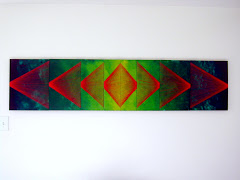

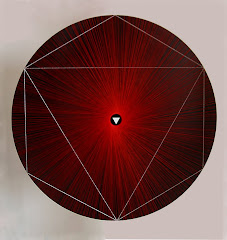
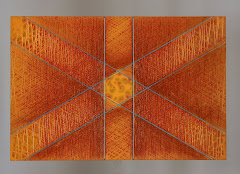
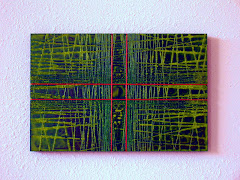
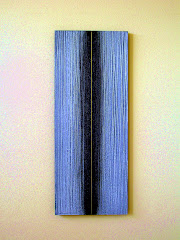.jpg)